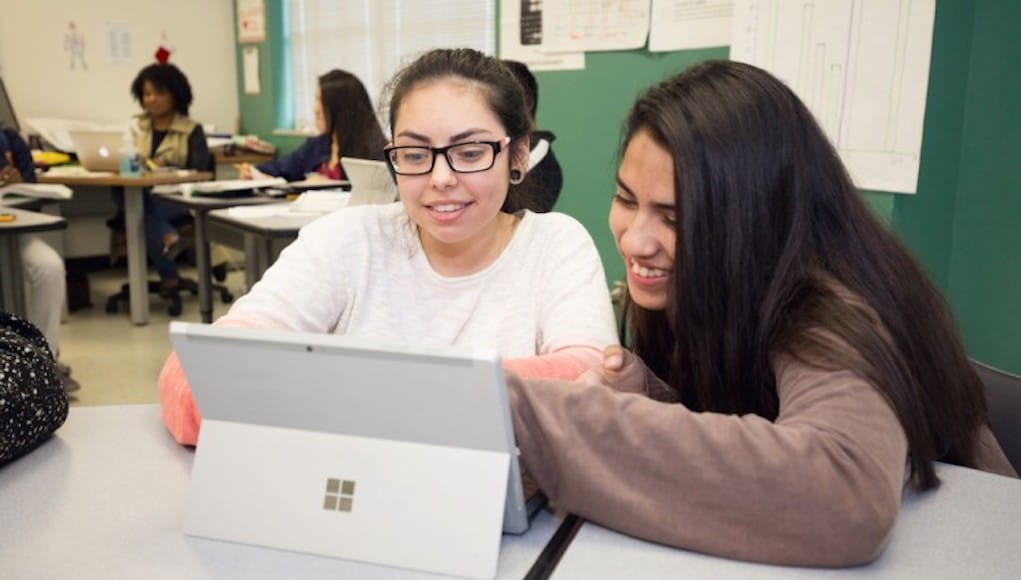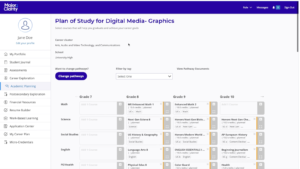Dallas County Promise: Leveraging Ed-Fi Technology for College & Career Readiness

By: Dr. Eric Ban
Many cities and counties across the nation can relate to the challenge facing Dallas: students aren’t graduating from college with the necessary skills to enter the local workforce or aren’t graduating from college at all. Dallas County is one of the fastest growing economic regions in the country, yet the number of people living in poverty has increased by 42% over the last 15 years. 65% of our living-wage jobs require an education beyond high school. Yet only 37% of adults in Dallas County have a two-year or four-year degree.
Career readiness impacts every family, every employer, and the economic health of our community. So, in 2017, the Dallas County Community College District Foundation initiated a conversation with many stakeholders to develop the Dallas County Promise offering a last dollar scholarship enabling tuition-free college pathways in partnership with regional universities aligned to the needs of the North Texas workforce.
In doing so, we quickly discovered that, if we wanted to be effective and efficient, we would need to access datasets from many different systems. Securing quality data to support the student journey would help us determine our effectiveness as the program progressed and it would also guide us in making continuous improvements across the school to work pipeline.
Countless data sources shed light on the skill gap issue: high school assessments, ACT/SAT scores, college applications, financial aid, college attendance—the list goes on. Bringing these data points together was going to be a cornerstone of success for the project. In order to support the evolution of our talent pipeline, data interoperability was essential. Meaning, we needed the data from various school districts—all with different tech vendors and systems—to speak the same language. We needed to begin collecting robust, real-time data in a way that made deep analysis and scalability possible.
Enter the Ed-Fi Data Standard. This is a blueprint for how all data should be organized and categorized. It’s akin to a Rosetta Stone, allowing different systems to speak the same language and breaking down the walls around valuable datasets. Through the work within the Ed-Fi Alliance Community, we’ve been able to connect with districts and their vendors to implement data interoperability through the Ed-Fi Data Standard and Technology Suite.
Now we are able to drive college and career preparation opportunities for Dallas County high school students programmatically, in real-time. Dallas County districts can begin to empower their learners by combining multiple data measures, such as their student information systems, formative and interim assessment vendors, and college readiness instruments, to provide a holistic, comprehensive view of students. With a full picture, educators can now connect students with the best opportunities available to them, helping to change their lives and improve the trajectories of whole families and communities.
One example of the power of this process is the story of Mya Jamerson and Shaniqua Lane. Mya is a recent high school graduate; Shaniqua is Mya’s mother. Because of the opportunities opened up by these incredible technologies, this mother and daughter were able to discover they both had a tuition-free pathway to a postsecondary credential. In fact, there have been a total of 63 student-parent pairs who have unlocked greater professional and personal agency through Dallas County Promise.
In the first year of the Promise, financial aid completion at participating high schools increased 7%. Enrollment in the Dallas County Community College District has increased 35% and retention from fall to spring has increased by 12%. These numbers are posted from an initial cohort of students that were 80% economically disadvantaged, 90% students of color, and larger than 8 U.S. states by senior count.
 None of this would have been possible without the Ed-Fi Data Standard and Operational Data Store and API—which allow us to pull information from multiple systems into one secure database—or without their team’s agility, creativity, and support. They have acted as a strategic partner and share our sense of urgency in solving this problem. Because of this, the outcomes have been powerful in a short period of time.
None of this would have been possible without the Ed-Fi Data Standard and Operational Data Store and API—which allow us to pull information from multiple systems into one secure database—or without their team’s agility, creativity, and support. They have acted as a strategic partner and share our sense of urgency in solving this problem. Because of this, the outcomes have been powerful in a short period of time.
We are committed to helping Dallas become the first American city to solve the workforce talent gap by helping all students gain the skills necessary to succeed in the North Texas job market. Our Goal is 60x30TX: 60 percent of Texans aged 25 to 34 with a college degree by 2030. We are certain that data is one of the most powerful tools at our disposal and are already witnessing the impact Ed-Fi unlocks for educators, students, and communities.
For more, see:
- How I Know: Impacting the Classroom through Student-Driven Learning in Dallas
- Boosting Career Readiness in Dallas
- Dallas Area District Embraces STEM & Educate Texas Partnership
Dr. Eric Ban is the Managing Director at Dallas County Promise. You can find him on Twitter at @Ericjban.
Stay in-the-know with innovations in learning by signing up for the weekly Smart Update.







0 Comments
Leave a Comment
Your email address will not be published. All fields are required.